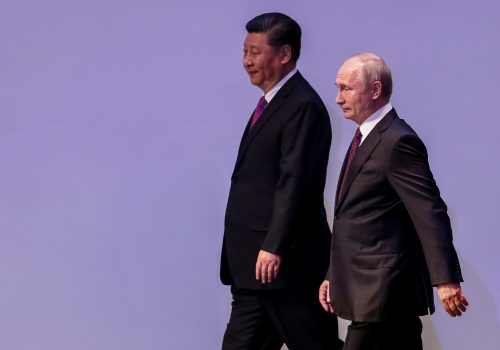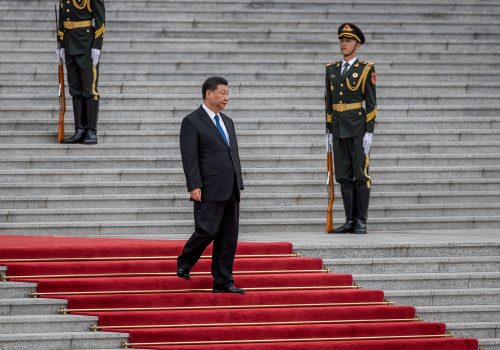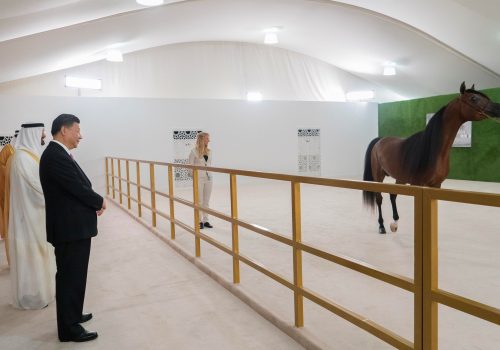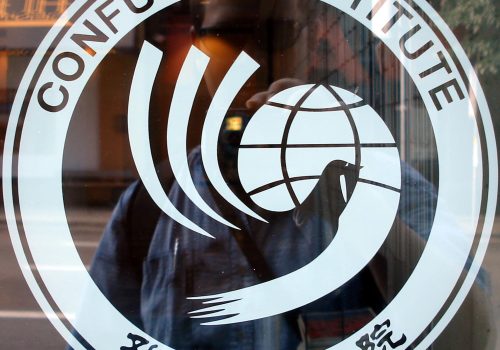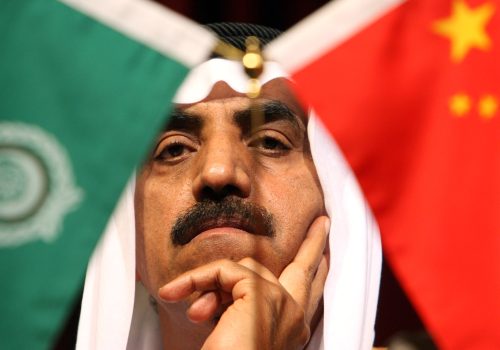Chinese Tech in North Africa
SUBSCRIBE TO THE CHINA-MENA PODCAST ON THE APP OF YOUR CHOICE
Key takeaways
- The Overview of the Digital Silk Road Initiative of China
- The Role of Huawei in the Digital Silk Road Initiative of China in North Africa
- How Huawei is perceived by other countries as not being solely a commercial company
- Deep Chinese presence in North African countries
- What the North Africans think of China and its presence in the region
- Significant projects of Huawei and other Chinese tech giants in the region
- Thoughts about the relationship between China and North Africa
Timestamps
[00:00] Introduction
[02:17] An Overview of the Digital Silk Road Initiative
[05:32] How Does Huawei fit in the DSRI of China
[08:37] Other Countries See Huawei as not a Commercial Company
[15:43] Deep Chinese Presence in Countries of North Africa
[18:44] What the North Africans thought of China
[24:31] Significant Projects of Huawei in the North Africa Region
[30:13] Some Tech Projects by Chinese Tech Giants in The Region
[35:04] North Africans Appetite in Cooperation with China
[38:58] Thoughts about the Relationship between China-North Africa
[41:16] Conclusion
In this episode
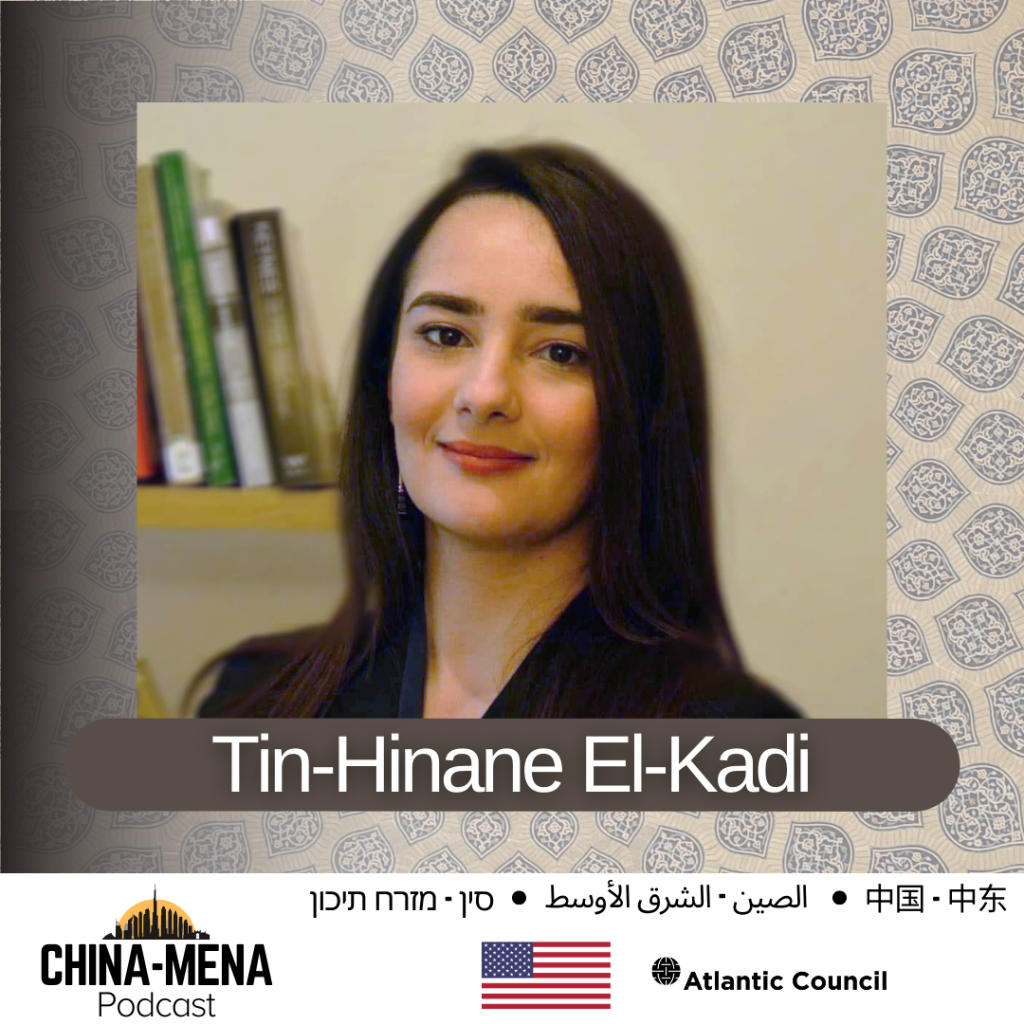
Dr. Tin Hinane El Kadi
Associate Fellow
Chatham House
Co-founder and co-director
Institute for Social Science Research on Algeria (ISSRA)
Tin Hinane El Kadi is the co-founder and co-director of ISSRA. She is a political economy researcher, currently writing a PhD thesis at the London School of Economics and Political Science (LSE), looking at China’s Digital Silk Road in North Africa. She is also an associate fellow in the MENA department at Chatham House. Her research interests include information, communications technology (ICT) and development, China’s presence in Africa and the Middle East, and contemporary Algerian politics.
China has been expanding its Belt and Road Initiative (BRI) around the world, while also working on a new version of BRI that utilizes the digital space. The initiative was dubbed the Digital Silk Road Initiative, or DSRI, which is already in motion across the Middle East and North Africa, particularly in North Africa. Big Chinese tech companies like Huawei have been assisting North African countries in digitizing their economies to compete with First World countries. These can also lead to wonderful opportunities for North Africans since DSRI promises regional economic growth.
In this episode, we are joined by Tin Hinane El Kadi, a political economy researcher, currently writing a Ph.D. thesis at the London School of Economics and Political Science (LSE), looking at China’s Digital Silk Road in North Africa. Dr. El Kadi’s research includes How Huawei’s Localization in North Africa Delivered Mixed Returns.
Host Jonathan Fulton and Dr. El Kadi discuss China’s Digital Silk Road Initiative and Huawei’s role in setting it into action. They also discussed the impression of the Chinese in North Africa, as China begins to establish a political role in the region. Moreover, they discuss Chinese ventures that focus on leveraging the digital domain. Data Centers, AI or Machine Learning, Cloud Computing, and 5G Technologies are all examples. Finally, they discuss the future connection between China and North Africa.
Hosted by
“I believe that governments around the region see the BRI as a wonderful chance to develop infrastructure, attract investment, and generate jobs for the region’s millions of unemployed.”
About the China-MENA podcast
The China-MENA podcast features conversations with academics, think-tankers, and regional specialists on Chinese Influence in the Middle East and informs US and MENA audiences in the policy and business communities about the nature of China’s outreach to the region.
At a time when China’s global footprint is getting deeper and deeper, it has never been more important to understand its foreign policy and the Middle East is one of the world’s most consequential regions: home to major religions, diverse cultural and social heritage, central to global energy markets, and of course, geopolitics, linking people and markets in Asia, Africa and Europe. This show will help you understand what China is doing in the region, and how the region is engaging with China as an increasingly important external power.
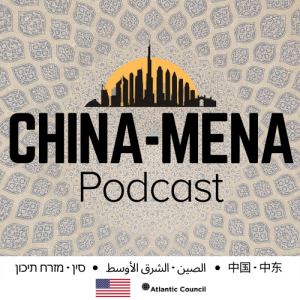
Podcast series
Listen to the latest episode of the China-MENA podcast, featuring conversations with academics, government leaders, and the policy community on China’s role in the Middle East.
Recommended reading
This podcast was funded in part by a grant from the United States Department of State. The opinions, findings, and conclusions stated herein are those of the author and do not necessarily reflect those of the United States Department of State.
Further reading
Tue, Feb 15, 2022
Sino-Iranian relations
China-MENA Podcast By
Professor Anoushrivan Ehteshami joins the China-MENA podcast to discuss China-Iran relations and the state of the bilateral relationship.
Wed, Apr 20, 2022
Chinese Soft Power Projection in MENA
China-MENA Podcast By
Shaojin Chai joins us to discuss China's reliance on soft power to develop favorable influence throughout the MENA region.
Thu, May 19, 2022
Chinese Multilateralism in MENA
China-MENA Podcast By
Dawn Murphy joins us to discuss China's approach to drawing Middle East and North African countries into Chinese-led cooperative forums for political support and influence.
Image: A view shows a Huawei logo at Huawei Technologies France headquarters in Boulogne-Billancourt near Paris, France, February 17, 2021. REUTERS/Gonzalo Fuentes








